Australia | Germany | Japan | Netherlands | Singapore | United Kingdom | United States
Technology continues to be critically important for the success of all types of businesses. Across all seven countries CompTIA studied, nearly three-quarters of technology and business professionals rate technology as a primary factor in reaching business objectives (72%).
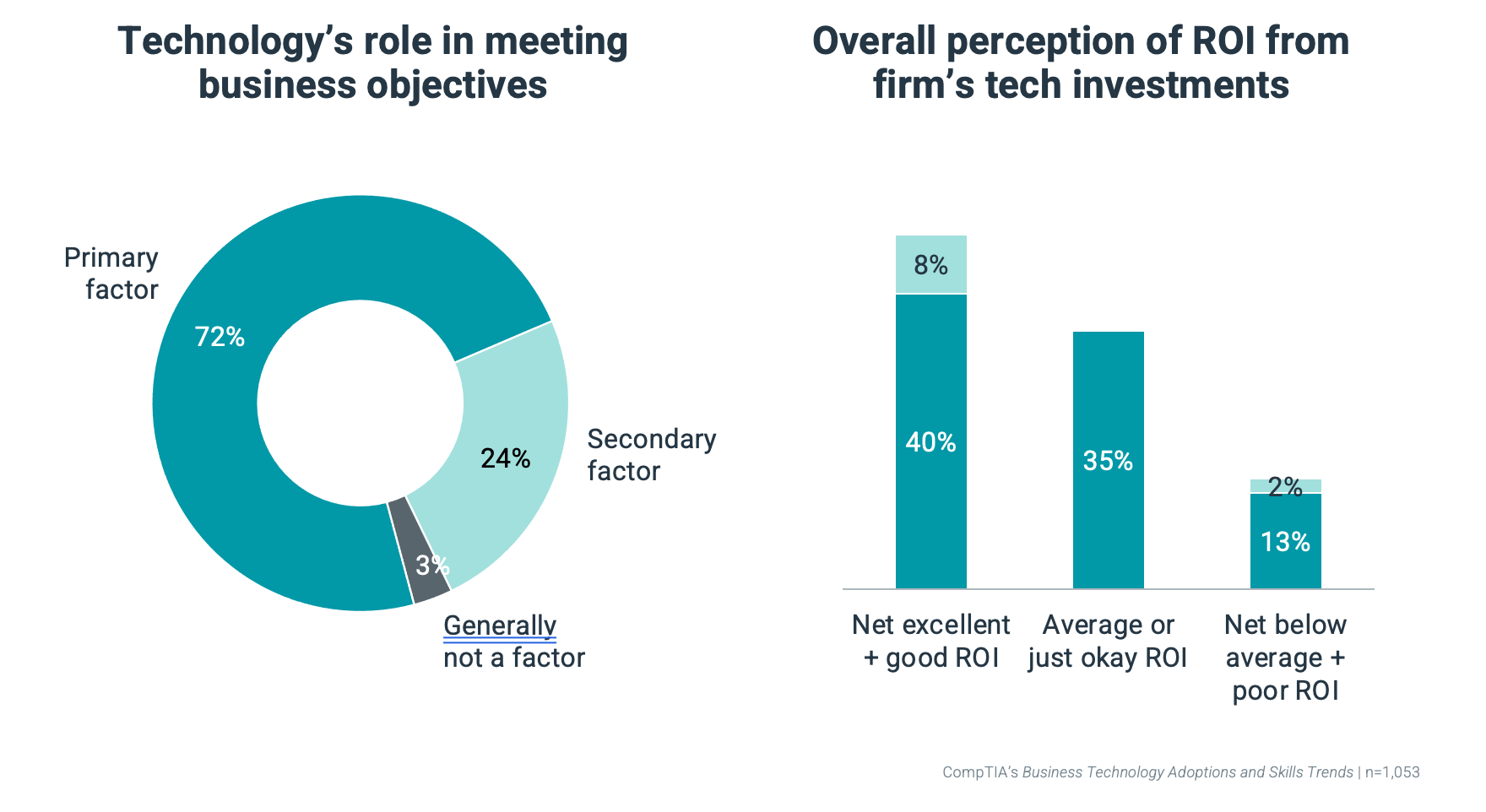
According to the data, more than half of businesses report using outsourced tech firms frequently or regularly (57%), plus another 29% doing so occasionally. Nearly 1 in 4 indicate using a managed service provider for ongoing IT operations management. Firms that outsource more often report higher perceptions of ROI. Top reported used of outsourced technology services include:
1). Tech consulting,
2). Cloud related,
3). Cybersecurity,
4). Software, web or app development, and
5). Troubleshooting, repair or maintenance related.
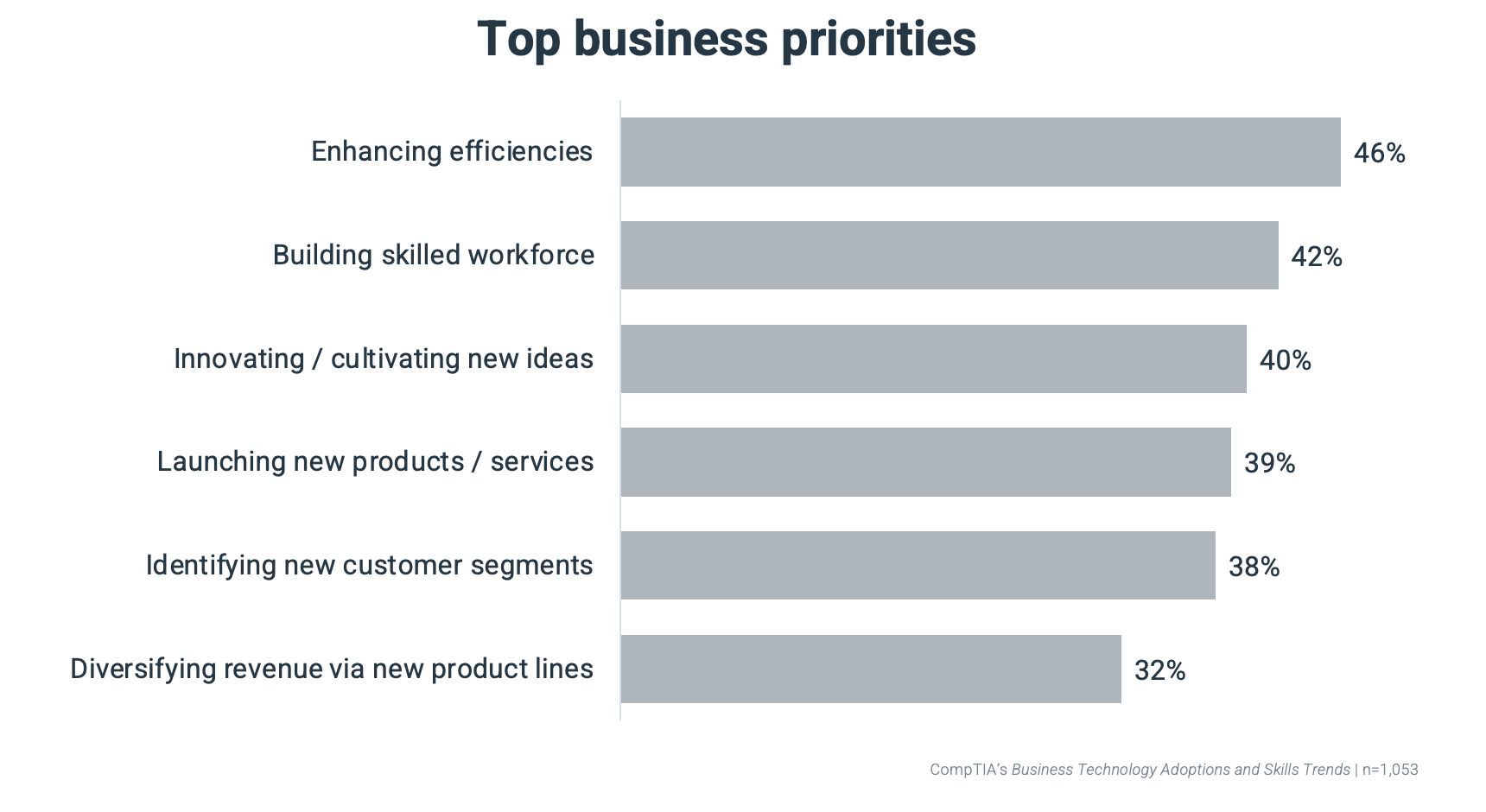
Nearly half of the firms in CompTIA’s study are mostly excited about the potential of technologies that are still in the early stages of adoption such as AI, AR, IoT, etc. Another 1 in 5 hold some caution as well as excitement. With the remaining 36% largely feeling apprehensive toward the unknowns new technologies bring. However, businesses that report a high level of ROI with their current technology tend to have a more positive view of emtech.
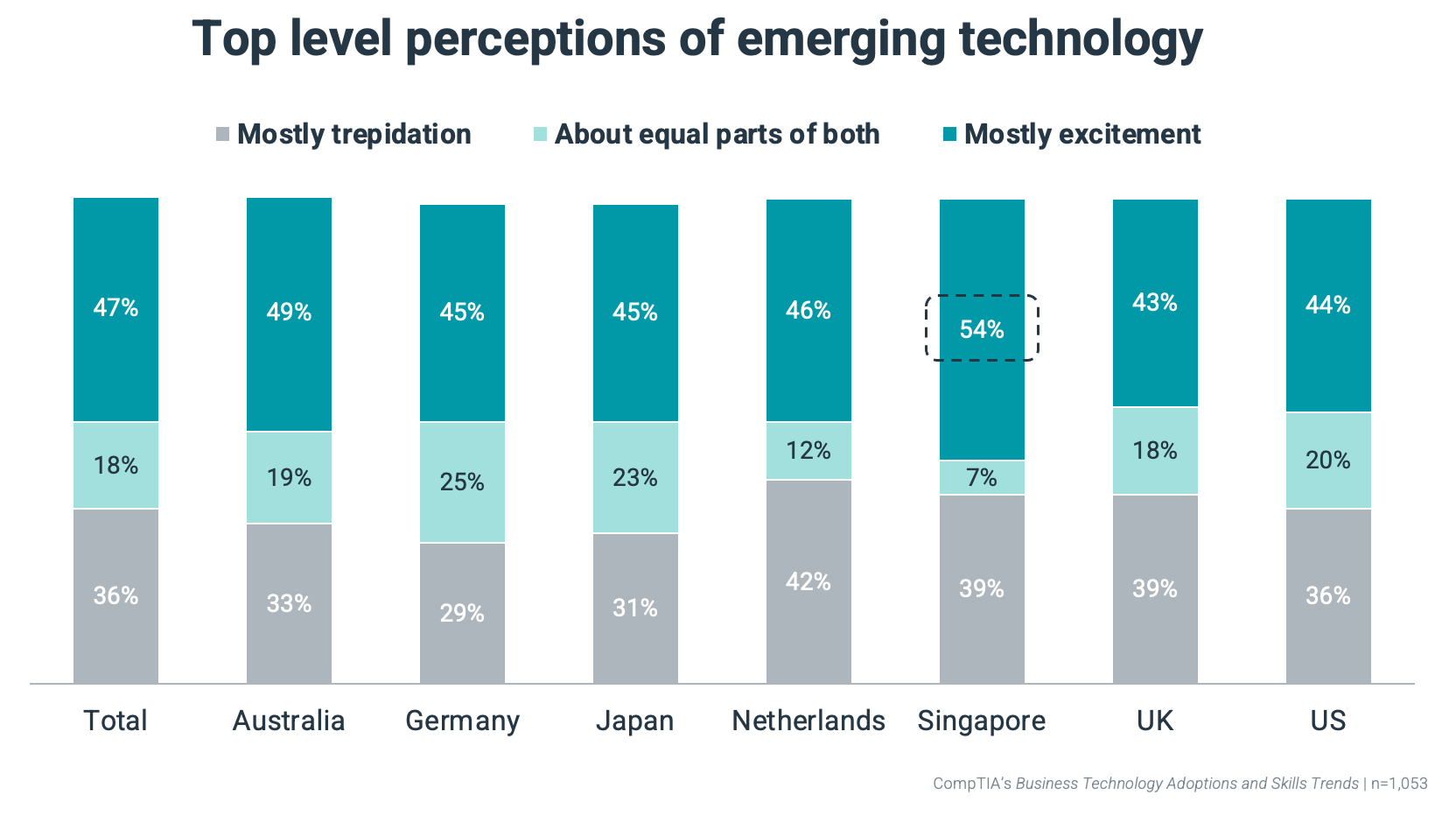
Virtually 2 in 3 professionals consider their organization’s current level of cybersecurity satisfactory (66% net). This includes only 18% who would describe it as completely satisfactory. While there is always room for improvement—especially given the relentless threat advances in the cybersecurity arena—there are still some substantial steps companies can no longer afford to gloss over. At least nearly all recognize the importance of enhancing cybersecurity skills among staff (98% select one or more areas of priority, e.g. cloud).
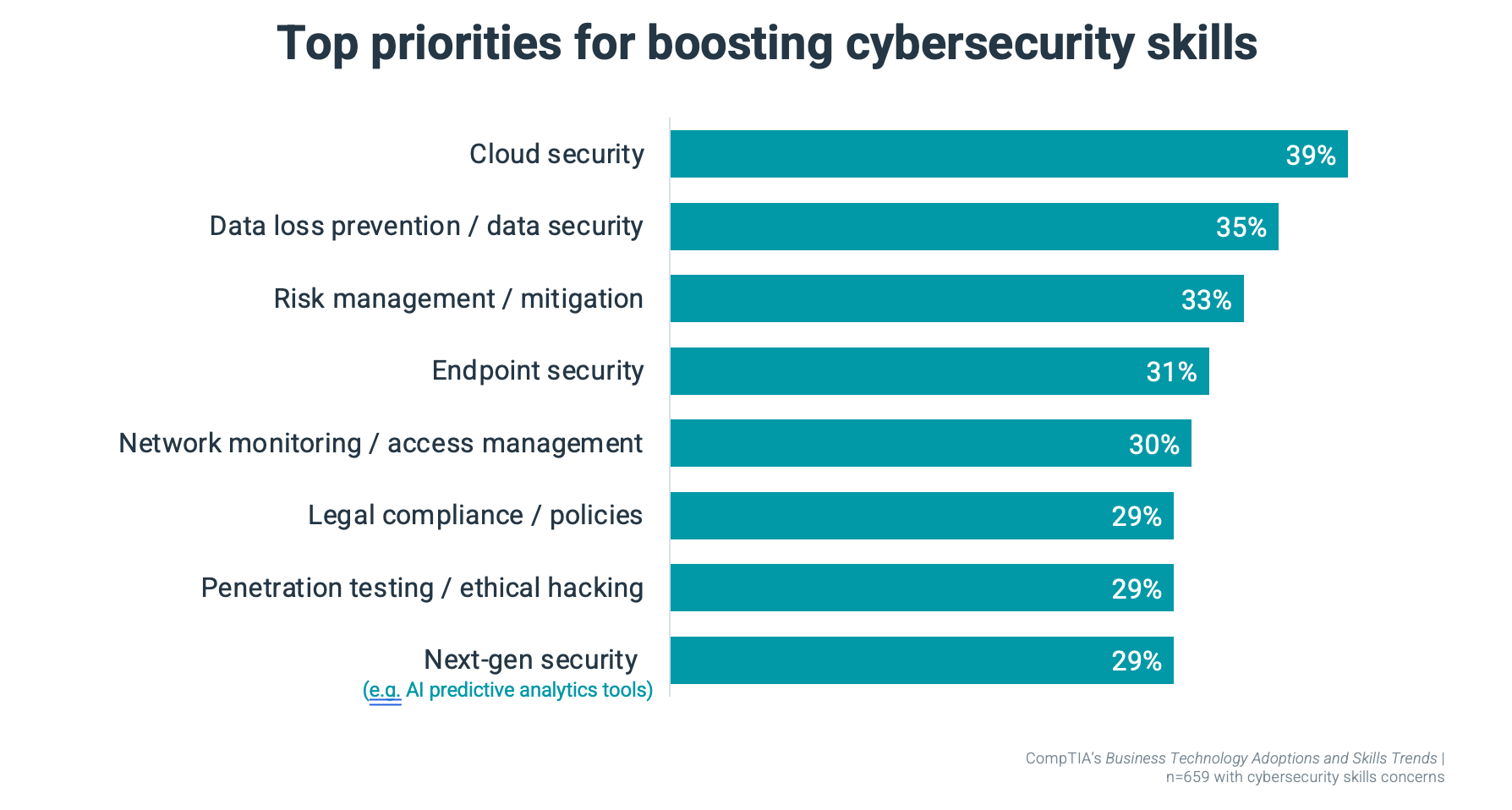
The great majority of technology and business professionals recall recently seeing or hearing about the concept of a skills gap (88% net) as it relates to real or perceived skills-job role disconnects. Furthermore, 1 in 2 report that the skills gap situation at their firm has grown over the past two years (49% net).
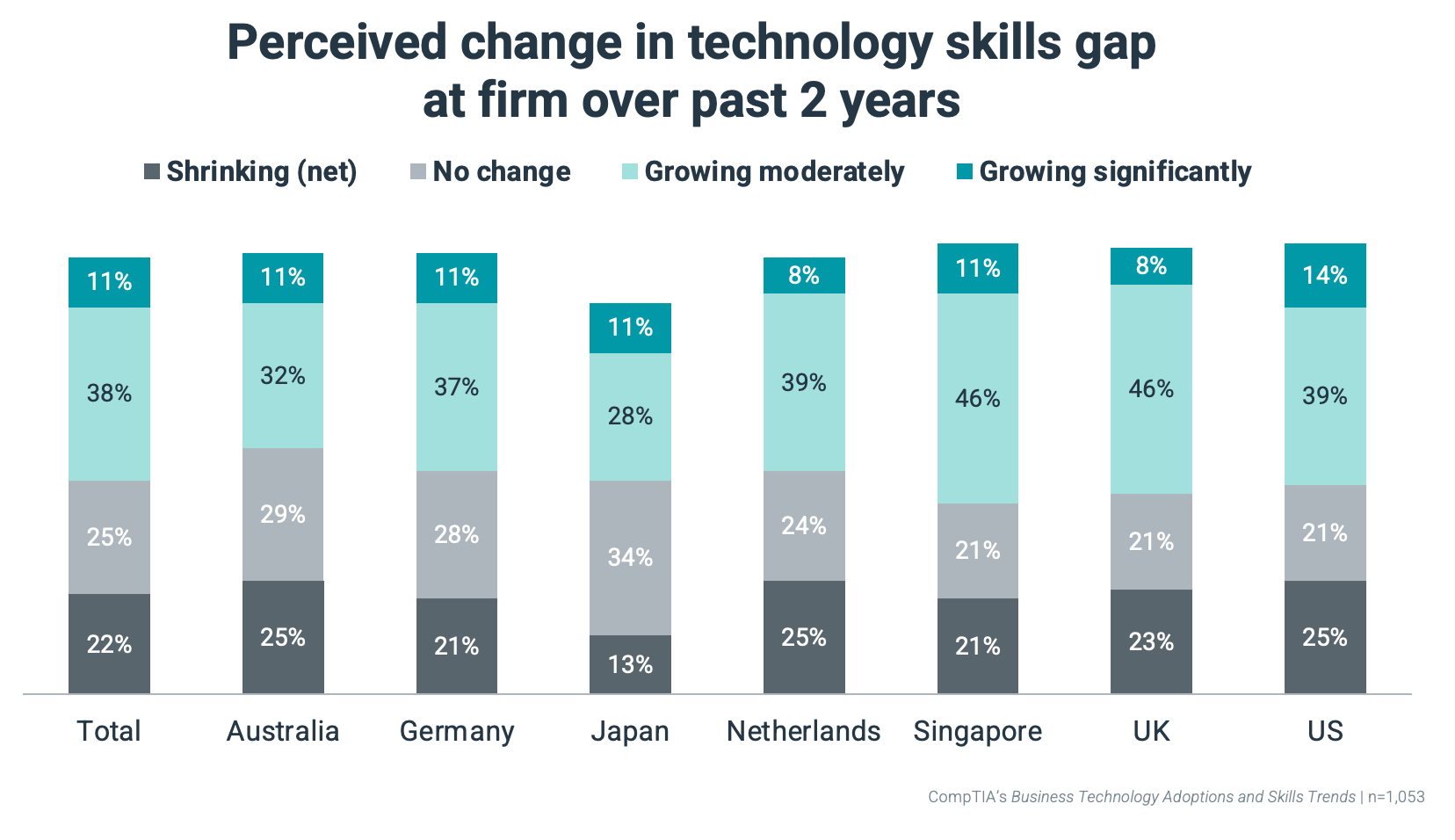
One-third of employers acknowledge that unrealistic expectations with skills and experience contribute to exaggerated perceptions of the skills gap. Another 52% acknowledge it is somewhat of a factor. In addition, there is a wide array of workforce gaps employers believe contribute to tech workforce hiring and retention issues such as:
1). Durable or ‘soft’ skills gap – insufficient skill / capability in non-technical areas such as communication,
2). Innovation gap – speed of innovation exceeding pace of training / workforce development,
3). Wage gap
– market wages for certain positions / skills exceeding employer budgets,
4). Confidence gap – prospects deterred by fears, uncertainty, or negative perceptions, and
5). Sector gap – insufficient expertise in specific industry
sectors.
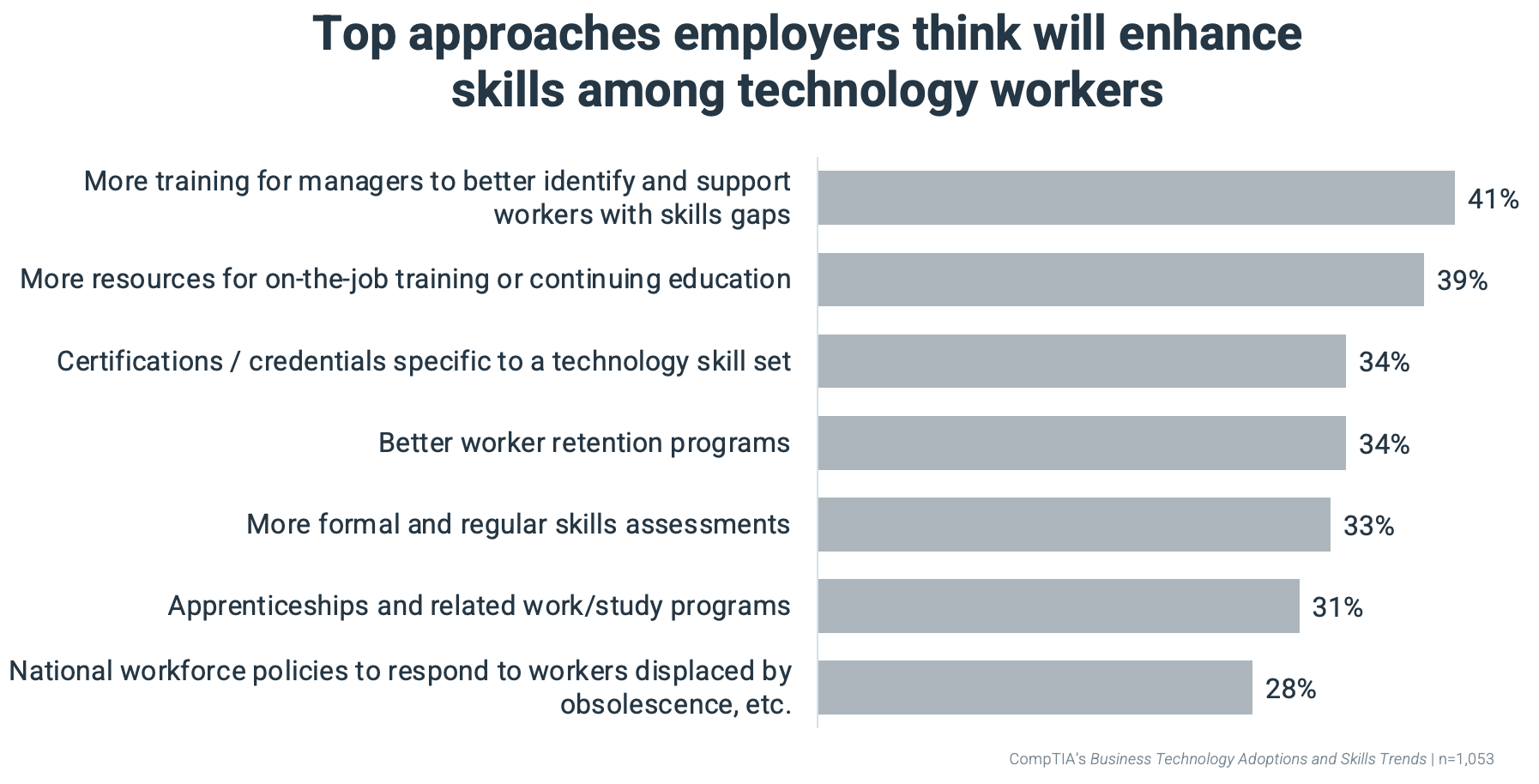
Technology will continue to impact jobs of all types. As history has shown these changes will take many forms – some positive and some negative. Most professionals in CompTIA’s study have recently seen articles about robotic process automation (RPA), intelligent machines, and other automating technologies performing some aspects of jobs or possibly replacing them altogether (71%), especially in Singapore (89%) and the US (81%).
Regardless, not quite 1 in 5 (17%) are very concerned that automating technologies may mean fewer jobs for people like them. But do note that another 53% are somewhat concerned. Furthermore, two-thirds indicate at least some interest in attaining additional training or hands-on experience with technology as a result of the outlook for how RPA and automating technologies may impact the workforce (67% net). Continuous improvement and professional development are more important now than ever, for organizations and individuals alike.
CompTIA’s Business Technology Adoption and Skills Trends was conducted to collect and share information on technology adoption and workforce trends across several countries including Australia, Germany, Japan, Netherlands, Singapore, United Kingdom, and United States. A total of 1,053 qualified technology and business executives and professionals participated in the quantitative study via online survey fielded during July 2022.
View full report PDF for more details.
See also Student Perspectives of Technology and Careers
Read more about Industry Trends, IT Workforce & Diversity.

 Download Full PDF
Download Full PDF